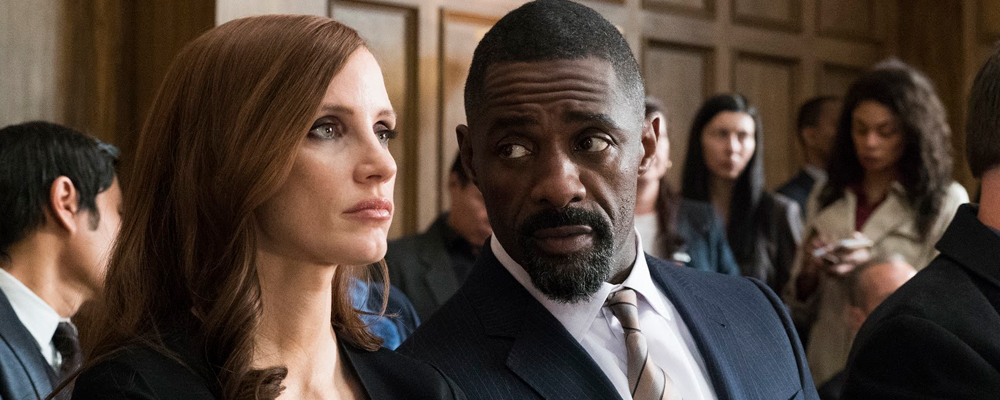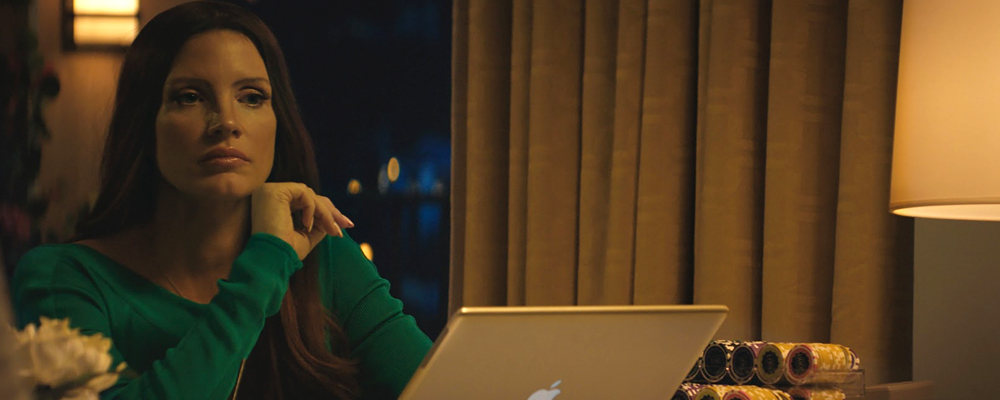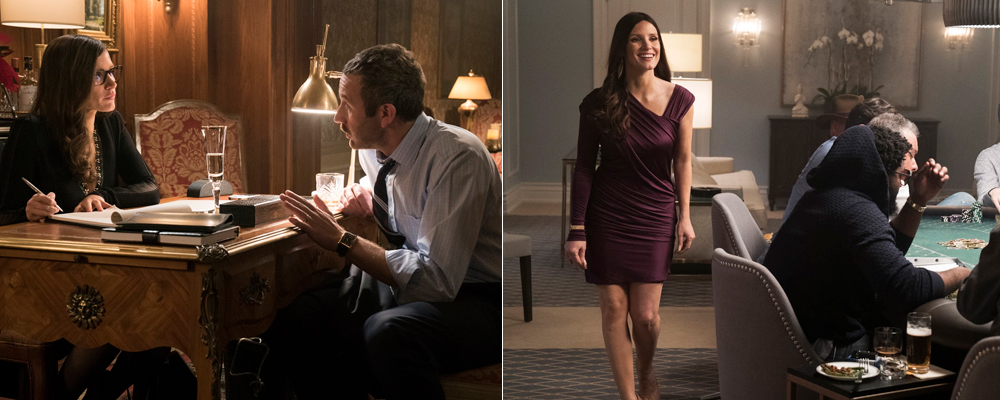Jessica Chastain Delivers a Stellar Performance in ‘Molly’s Game’
Alci Rengifo
In a year of breakthroughs, Aaron Sorkin has now seen fit to close out the season with “Molly’s Game,” the year’s only 140-minute voiceover. Renowned for his screenplays, which have indeed been sharp and engaging, Sorkin’s debut as a director is a mixed effort where everything is said, little is shown, and a funny pretension hangs over the whole affair. His film begins as an intriguing saga of the gambling underworld, and then decides to become an unconvincing TedTalk. Carrying it all is Jessica Chastain, who brings the material to life with that unique, angelic presence that has defined many of her roles, except here she reveals again that beneath the luminous smile there is a persona capable of real intimidation.
Chastain plays Molly Bloom, an Olympic skier driven by her rigorously disciplined father, Larry (Kevin Costner). During one competition she has a particularly crushing fall with potentially dangerous consequences. Cut to her years later, looking slick, meeting a high price lawyer named Charlie Jaffey (Idris Elba) amid serious federal charges against her. She begins narrating her story, how seeking escape from the pressures of the athletic world, Molly headed out to Los Angeles. She crashes on a friend’s couch and becomes a waitress at a trendy bar frequented by the city’s jaded elite. She catches the eye of a hotshot, young CEO, Dean Keith (Jeremy Strong), who is a grade-A jerk. But he soon introduces her to an underground poker game which he hosts and is attended by numerous celebrities, athletes and just plain wealthy people. Molly learns how to navigate among these high-stakes players and becomes so popular Keith eventually kicks her out. But she decides to organize her own underground poker game and soon has all the big names in town coming over to play. But she is swept up by the glitz and cash, soon attracting more dangerous clientele and catching the eye of the FBI.
The premise of “Molly’s Game” sounds fun and intriguing, and much of it is so fascinating I found myself wishing this had been a documentary. Molly Bloom is such an intriguing personality, full of intelligence and savviness, that the real person must be entirely more engaging than the movie. That is not to say there isn’t formidable talent in this film. Sorkin delivers moments that truly stand out in the writing, staging and acting. The scenes involving Molly’s introduction to the world of underground poker have the shady intrigue of films like “Rounders,” where the game becomes a cutthroat duel of egos. It truly is exciting to see how Molly hustles her way into her own boss’s game and schemes to snatch his client list. The line of characters who pass through her game room are intriguing in their realism (jaded celebrities, bored businessmen). Sorkin has fun with the kind of inevitable sexual issues that arise out of Molly’s unique career choice (more than one gambling addict professes his love for her).
But where the movie strays is in its overall technique. Instead of settling for an energetic, flowing narrative, Sorkin cuts back and forth between what feels like two movies. Just as we’re wrapped up in the story of Molly’s rise through her poker game, Sorkin keeps cutting back to the storyline involving Jaffey and the court case. This is interestingly enough, the least engaging part of the movie, especially because it spoils everything by telling us what is going to happen before it happens. The story doesn’t build up to Molly’s day in court, it starts there. Instead of showing us the story unfold, Sorkin has Idris Alba tell it to Molly in his office before letting us get a glimpse. These scenes are dry, at times mundane moments reminiscent of a thousand other legal dramas. If Sorkin had simply followed Molly’s journey from poker boss to jail, it would have been riveting, or at least as fun as “American Hustle.”
Sorkin seems to believe his own legend a little too much and buries a lot of the film’s energy under endless streams of narration. There were moments where I felt like telling the screen, “ok, ok, now let me see.” Every little development and detail is explained by Chastain in voice over, and this hampers the movie, never allowing it to breath as cinema. Some of Sorkin’s most famous credits, such as “The Social Network” and “Steve Jobs,” benefited from directors who focused on creating a visual experience that helped propel the dialogue. But here the dialogue overtakes the visuals, especially since Sorkin’s style is very static. There is an odd imbalance of tone as well in how Sorkin sees the character. Molly obviously involved herself in some shady dealings, which eventually included people connected to the mob, but Sorkin wants to spin it all in the third act into a kind of inspirational, self-motivating piece, which even ends with a Winston Churchill quote.
Chastain keeps it all together with a performance that somehow maneuvers through the film’s funny personality crisis. One moment she’s a hard-edged go getter, the next she’s a teary-eyed home girl trying to work things out with Kevin Costner. She is rightfully getting much buzz over her work here. It demonstrates again that unique range Chastain has which swerves from saintliness to ferocity. Elba is simply playing another lawyer, firing Sorkin’s pages of monologue in rapid-fire speed. Impressive, but there’s little meat to the role, he quite literally stands and narrates for most of the movie.
“Molly’s Game” has the merit of having moments that shine so well over the rest of the material that we feel grateful to have seen them. Sorkin may still be finding his stride, but this first venture leaves us still wanting to see what he writes up next.
“Molly’s Game” opens Dec. 25 in select theaters, Jan. 5 nationwide.



